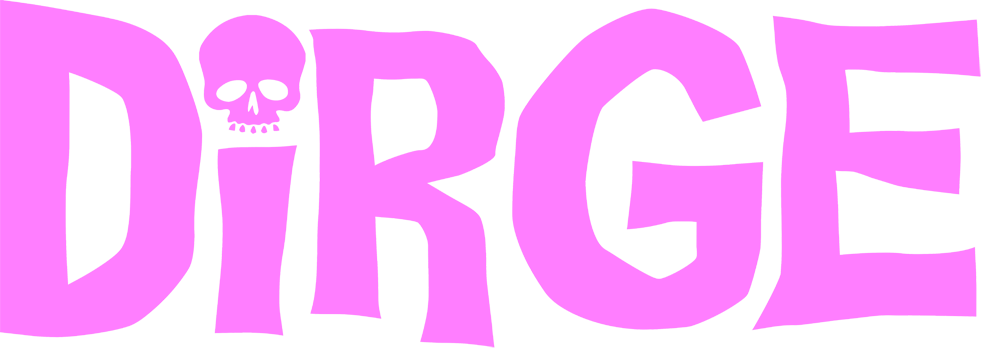In the introduction to Psychonaut, his seminal collection of essays on the practice of chaos magic, Peter Carroll wrote these words:
Whenever history becomes unstable and destinies hang in the balance, then magicians and messiahs appear everywhere.
Our own civilisation has moved into an epoch of permanent crisis and upheaval, and we are beset by a plague of wizards.
This statement seems appropriate to today’s socio-political climate but, given that it was written slightly over thirty years ago, the sentiments are actually distressingly prescient.

This short essay will be less a review of Carroll’s twin introductory works of Psychonaut and Liber Null, you can read the book for that, and more of an attempt to explain why there has been no better time to understand the workings of chaos magic by showing how chaos magic, in theory if not in spirit, is already being used against every one of us every second of every day by our world’s politico-economic power systems.
The First Truth of Chaos – Everything is in flux, flux is in everything.
In Carroll’s work, chaos magic is less about actively transforming the external universe by force but transforming oneself and, through that transformation, achieving a metamorphosis – a sleight of mind – that allows the chaos magician to flow with the currents of reality, accepting all eventualities as useful. The chaos magician should be able to eradicate old habits and adopt new ones freely, accept contradictory belief systems simultaneously, adapt to any situation that faces them without the inertia or distress this often brings.
Liberating behaviour is that which increases one’s possibilities for future action. Limiting behaviour is that which tends to narrow one’s options.
Modern power systems, perhaps through a process of sheer animal cunning, exercise this chaotic process on a daily basis. If a friend or family member suddenly denied previous actions or statements, ones that can be evidenced to have happened, we would begin to doubt their sanity but few of us are surprised by a political u-turn or explanation of how an apparently sincere policy decision was ‘misspoken’. Where the chaos magician uses this fluidity to slip through the corridors of reality, power systems use it to disorientate and confuse those they wish to dominate. The concepts of ‘gaslighting’ and ‘fake news’, confusing the victim by making them doubt the solidity of their assumptions, are prime examples of chaos magic theory being used as a tool of suppression.
A politician, or any other individual for whom power is the ultimate goal, will always look to increase their possibilities for future action. Maintaining contradictory positions, or changing opinions without referencing the change, allows these possibilities to persist. Even the language of politics – of it being a game, constructed of manoeuvres – makes this explicit; a game where no possibility remains is no longer a game.
The Second Truth of Chaos – The sigil is the eye of power.

To formulate a desire makes it vulnerable to external forces and, perhaps most importantly, the inner enemies lurking in the magician’s own mind. Taking the articulation of that desire and rendering it down to its most meagre parts, either by deconstructing it in its written form or creating an abstracted image from a picture of its outcome, creates a ghost of desire that can drift through the fingers of doubt, of fear, of fatigue. The desire becomes insidious, pervasive. By this method the chaos magician performs a near-Buddhist form of ‘unwanting’; the desire is poured into the sigil, empowering it as an avatar and releasing it from the frailties of the magician.
Sigils work because they stimulate the will to work subconsciously, bypassing the mind.
Again, though, the flip side of this technique exists as an unseen cage around us. The Newspeak cant of business language, and the euphemistic military terminology it is derived from, are a combination of chaotic sleight-of-mind and sigilisation. Apparently positive words (surgical, precise, enhanced) are used to described negative events, blithely waving away any contradiction. Equally, corporate logos are distilled and abstracted through a form of sigilisation to imply dynamism, progression, strength, power. The Nike swoosh tells us nothing about what Nike do as a company, yet we would all recognise it and its sense of athletic agility. The McDonald’s logo is no longer simply an M, it is a pair of golden arches leading to somewhere better.
Meaning is obfuscated, ultimately forgotten, to be replaced with a vague, bland hint at what is perhaps meant.
High-end advertising is the synthesis of this corruption of language and imagery. Few perfume adverts, for example, talk about the essence of what they are selling; the smell of a liquid. They remove the meaning from their message so it becomes abstracted into something aspirational, but which is too vague to ever catch hold of. Words are repeated, out of context, until they become meaningless; sometimes, like FCUK, they even nod to their own use of distraction.
Sigils become enfolded in on themselves, self-referential; Perfume X is desirable because it is worn by Celebrity Y, Celebrity Y is desirable because they wear Perfume X.
The Third Truth of Chaos – Every word of it is a lie.
Chaos magic is not magic. It invokes no external powers, calls to no spirit nor demon. It needs no incense nor flaming oils beyond those that theatricality demands. Its mirrors and scrying glasses only show the face of those looking into them. Even the eight-pointed star,

hyper-sigil of chaos itself, is merely an image created by the writer Michael Moorcock sometime in the 1960s. A logo. A brand name.
Chaos magic is simply the will of the magician imposed upon themselves and, in that, it is the most democratic of magics. The chaos magician is not the haughty king but the smirking jester, not part of an elite born to power but one who has found power within themselves by becoming aware of how little what is often thought of as ‘power’ truly matters. Those who cling to political or economic power for its own sake will find themselves lost, chasing their own tails for ever-decreasing rewards, whilst the true chaos magician, standing silently to one side, looks on with a wry smile.
In trying to develop the will, the most fatal pitfall is to confuse will with chauvinism of the ego. Will is not will-power, virility, obstinacy, or hardness. Will is unity of desire.
This gives us a defence against the psychic war being waged by the complex of power systems around us, using corrupted forms of chaos magic; laugh at them, show them up for how absurd they truly are. Laugh at the pomposity of petty egos, laugh at the manufactured needs that capitalism blinds us with, laugh at your own insignificance in a void that rings with laughter.
Laughter is the only tenable attitude in a universe which is a joke played upon itself. The trick is to see the joke played out even in the neutral and ghastly events which surround one. Seek the emotion of laughter at what delights and amuses, seek it in whatever is neutral or meaningless, seek it even in what is horrific or revolting.
Further reading:
Liber Null & Psychonaut, Peter J Carroll
Liber Kaos, Peter J Carroll


